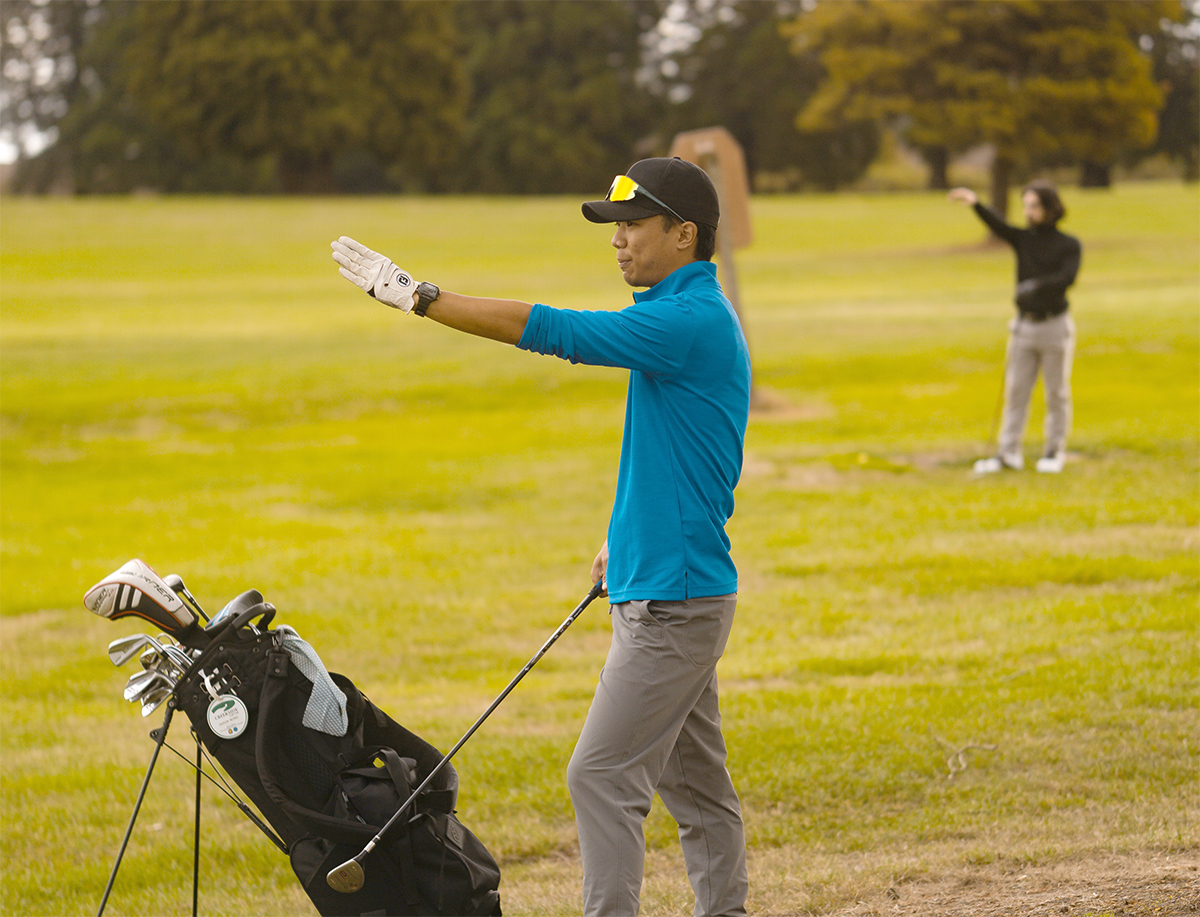
28 Nov When should we call “Fore!”
There is a topic I’d like to bring to the “forefront” (pun intended!) and that is, when should we call “Fore!” on the golf course?
Most golfers are very familiar with one situation in which you should always call Fore, but did you know that there are actually TWO scenarios where we should be giving our vocal cords a workout and calling Fore?
The first instance in which we should always call Fore! is whenever we see a ball travelling in the direction of another player. It doesn’t matter whether we’ve hit the ball or not, and you don’t need to be certain that the ball is going to hit another player, as soon as we see a golf ball that might go close to another player we should ALWAYS loudly call Fore! The reason we should always call Fore even if we didn’t hit the shot, is that the other player may have lost sight of their ball, they may freeze in the moment and forget to yell, or they may be relatively new to golf and not be clear on the etiquette. Whatever the reason, always take the initiative and make the call yourself. Likewise, even if you are reasonably certain that the ball will miss the other player, it is always safer to call Fore. The wind, spin on the ball, or even an unexpected movement from the other player may mean that a ball that looks like it is going to miss, might hit another player. The other reason is that it can be extremely dis-concerting for a player when a ball unexpectedly lands near them. So err on the side of caution and always call Fore. It’s better to be safe than sorry!
So what then is the second instance when we should call Fore? Quite simply, whenever you hit a shot and you cannot see where the ball is going to land, you should call Fore! When you think about it, this makes complete sense. If we can’t see where the ball is going to land, then there could always be another player in the line of fire. There are a few locations on our Course where this is particularly important:
1. Teeing off on the 10th. Balls that carry the garden bed on the right hand side of the fairway can pose a risk to players coming down the right hand side of the 18th fairway.
2. Teeing off on the 13th. Balls that slice (for right handers) over the pond to the right can be obstructed by the garden bed and occasionally finish either in the bunkers or even on the 16th green.
So to summarise, always call Fore if:
– you see any golf ball travelling in the direction of another player
– you hit a ball and you can’t see where it is going to land
Remember the Golden Rule, if in doubt, call Fore!
What do I do if I hear someone call Fore?
If you hear a call of Fore, the single most important thing to remember is to not look up and try to see where the ball is coming from! It’s human nature to do this of course, but it’s the worst possible course of action. Looking up or turning around to face an incoming ball is most likely to result in injury in the event a golf ball is heading your way.
Instead, if you hear a call of Fore:
– turn away from the direction of the call
– crouch down or duck your head
– protect your head with your arms and hands (think about the ‘crash position’ on planes)
These simple tips will help in the very unlikely event of a ball heading your way.
Andrew Meldrum
Club Captain


